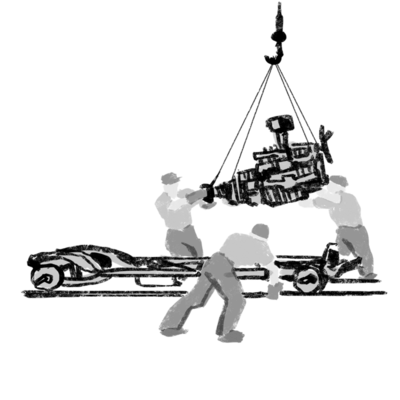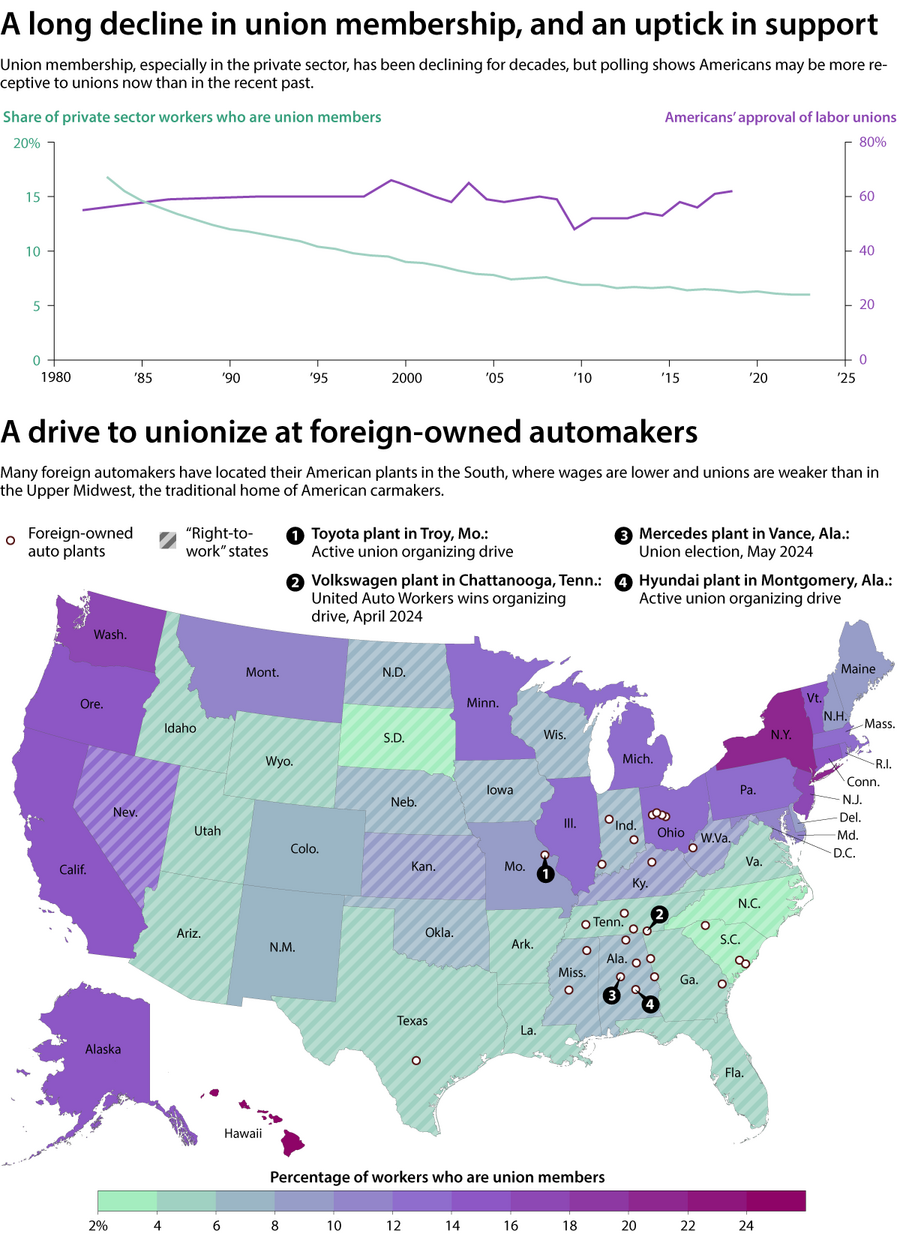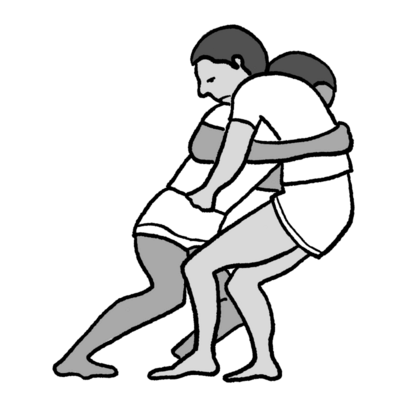U.S. President Joe Biden has been more visible as of late, traveling to battleground states and emphasizing key issues like abortion. It signals a new, more vigorous phase in the campaign.
Monitor Daily Podcast
- Follow us:
- Apple Podcasts
- Spotify
- RSS Feed
- Download
 Mark Sappenfield
Mark Sappenfield
When a relative worked on Capitol Hill, I was shocked at her glowing comments about former Sen. Edward Kennedy. She was a staunch Republican, but she appreciated that one knew where one stood with Mr. Kennedy. He was liberal, but reliable.
Howard LaFranchi’s story today about American foreign policy makes a similar point. Yes, foreign countries would love the United States to still play global cop. But they also just want consistency. For decades, the U.S. was a rock. Today, Americans aren’t sure what role they want the U.S. to play, and that uncertainty is felt from Ukraine to Gaza.
Help fund Monitor journalism for $11/ month
Already a subscriber? Login
Monitor journalism changes lives because we open that too-small box that most people think they live in. We believe news can and should expand a sense of identity and possibility beyond narrow conventional expectations.
Our work isn't possible without your support.
Today’s stories
And why we wrote them
( 4 min. read )
Today’s news briefs
• Abortion rule: The Biden administration issues a final rule aimed at strengthening privacy protections for women seeking abortions.
• Chinese detentions: Beijing continues to commit genocide and crimes against humanity against Uyghurs and other Muslim minorities in China’s Xinjiang province, U.S. Secretary of State Antony Blinken said in a report.
• Starbucks unions: The U.S. Supreme Court is set to hear oral arguments in a case filed by Starbucks against the National Labor Relations Board.
• Ukraine aid: The United Kingdom will give an additional $620 million in new military supplies to Ukraine at a time when Ukraine is struggling to hold off Russian forces.
( 3 min. read )
In the United States, many foreign-owned auto plants are based in the South, where unions are weaker. But a recent United Auto Workers win could shift the narrative.
( 6 min. read )
Persistent restrictions on U.S.-China travel have put would-be American study-abroad students in a tight spot – and they also risk robbing the United States of its next generation of China experts.
( 4 min. read )
America’s allies see Washington’s resumption of military aid to Ukraine as a sign that it is still ready to play a global leader’s role. But the debate before the aid vote revealed a less certain message.
( 4 min. read )
Passover celebrates the Israelites’ delivery out of captivity in Egypt. In Israel, Monday evening’s ceremonies were muted by uncertainty surrounding hundreds of Hamas-imprisoned hostages.
( 6 min. read )
Immigration is sometimes perceived as a threat to tradition. But in Spain’s Canary Islands, it appears to be the means to preserve a centuries-old sport that has been in danger of dying out.
The Monitor's View
( 2 min. read )
A new course offered for students in many of China’s vocational schools is a drama workshop. The goal, however, is not a job in theater. Rather, students are encouraged to speak out in a theater setting about the public stigma – and self-stigma – of being in vocational school.
They are taught to write a play and perform it before an audience based on their feelings about a deep social prejudice in China against those who do not follow the academic track for a university degree. They verbalize the internal shame, helping them reshape a negative identity, according to Wang Zijin, former program director at Hope School, a platform designed for mainly rural schools.
Some students find it helpful to joke about the stigma. Others feel a freedom just in responding to the labels attached to them – such as “loser” or “washout” – for not passing the rigorous exams to get into high school or university. “We are not inferior to others; we respect ourselves,” one student wrote.
Ms. Wang cited the ultimate goal for students: “By playing themselves they become new versions of themselves,” she wrote in Sixth Tone, a news website in China. They lift themselves above a social curse.
The drama program is a key part of a cultural effort in China to treat vocational training with equal importance to general education. In fact, that goal was stated in a 2022 law that included dozens of reforms in what is the world’s largest vocational education (voc-ed) system.
China will face a shortage of nearly 30 million workers in the manufacturing sector by 2025, according to official data. The shortage may hinder a plan to create an “innovation economy” that can reduce the high rate of youth unemployment – a problem caused in part by a surfeit of university graduates who cannot find work in their fields.
The reforms – beyond trying to end the stigma against vocational training – include allowing voc-ed students to take some academic courses and pushing employers to set up more and better apprenticeship programs. In addition, hundreds of new voc-ed schools are being built, while teacher quality is being improved.
“It will take time for people to stop stereotyping vocational education,” Chu Zhaohui, a researcher at the National Institute for Education Sciences, told Sixth Tone. “For decades, many Chinese have believed education is to train literati and boost talents that can govern society. But education should also equip people with the abilities for labor. We need to change people’s mindsets.”
Or as Ms. Wang wrote about voc-ed students taking the drama workshop: “They can see that life doesn’t end when vocational school begins.”
A Christian Science Perspective
Each weekday, the Monitor includes one clearly labeled religious article offering spiritual insight on contemporary issues, including the news. The publication – in its various forms – is produced for anyone who cares about the progress of the human endeavor around the world and seeks news reported with compassion, intelligence, and an essentially constructive lens. For many, that caring has religious roots. For many, it does not. The Monitor has always embraced both audiences. The Monitor is owned by a church – The First Church of Christ, Scientist, in Boston – whose founder was concerned with both the state of the world and the quality of available news.
( 3 min. read )
Any triumph over ungodlike thoughts, such as fear and anger, contributes to greater peace in our communities.
Viewfinder

A look ahead
Thank you for joining us today. Please come back tomorrow when Henry Gass looks at the U.S. Supreme Court. For decades, it was the most-trusted institution in Washington. That’s no longer the case. But there is a clear pathway for the court to rebuild trust with the public.












